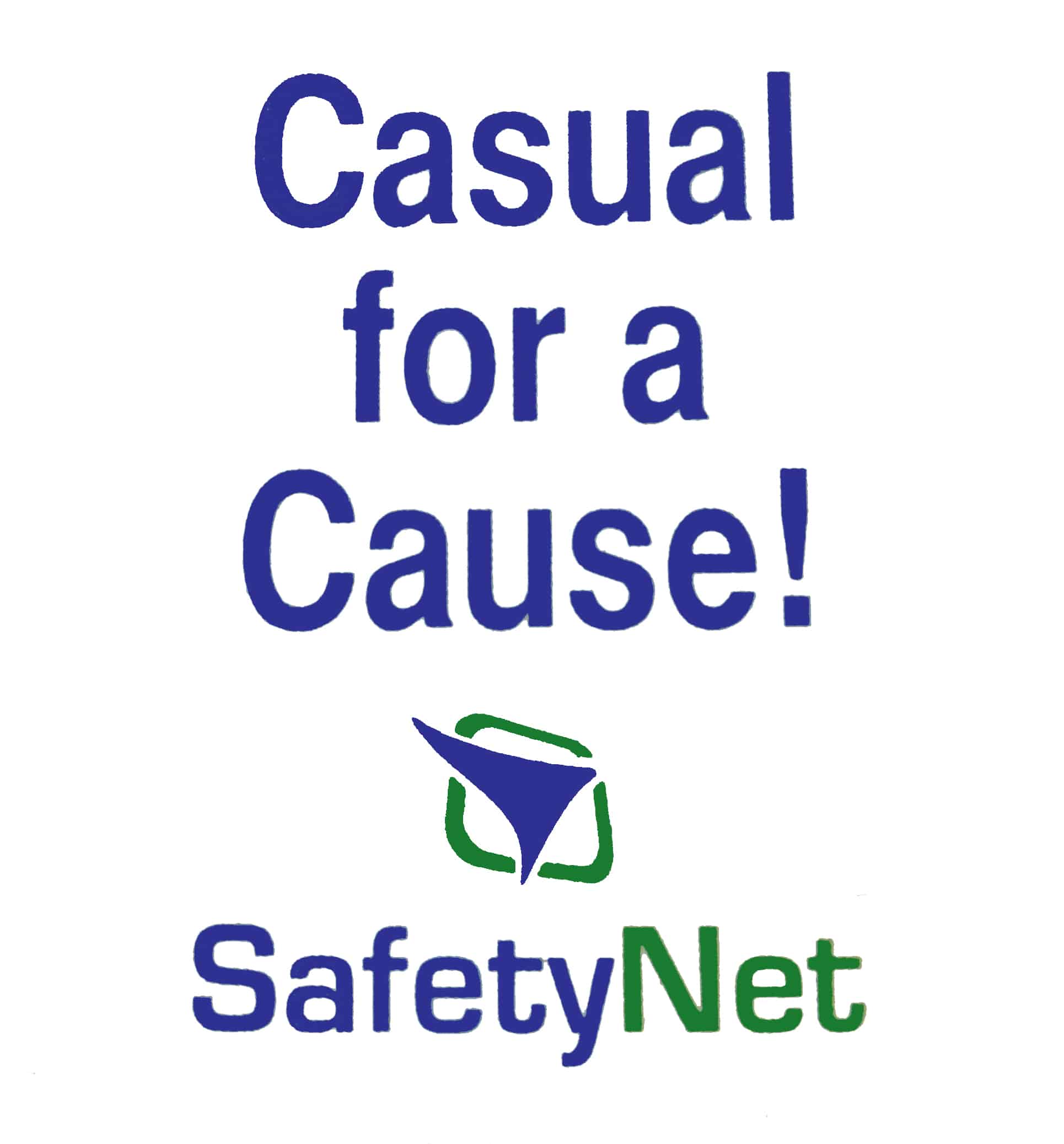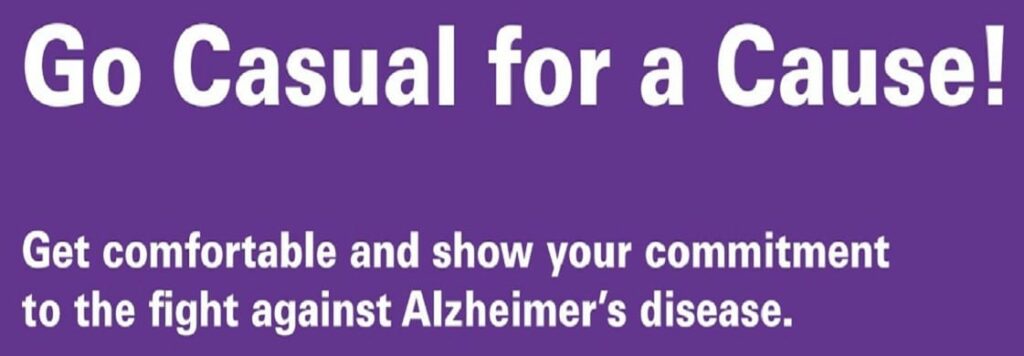It’s a Friday afternoon at Safety Net. Several people are wearing company logo gear from Alfie – polos, sweater vests, cardigans, whatever they choose. Jeans are the common denominator on Fridays – and they’re always accessorized with a Casual for a Cause pin. 
Community involvement and giving back have always been important pieces of our company culture. Every year, we support Marathon4Kids and Goodwill Industries. In 2016, our team decided to do more in order to help more people. Casual for a Cause was set into motion in each of our offices. In exchange for a small donation, staff can wear denim to work on Fridays.
The first charity selected was Make-A-Wish of Michigan. The next recipient was Big Brothers Big Sisters. This year’s Casual for a Cause contributions will go to the Alzheimer’s Association.
Alzheimer’s – the 6th Leading Cause of Death in the US
Like millions of people, several Safety Netters have lost family members or close friends to Alzheimer’s disease or other dementia. My involvement with Alzheimer’s started in 2015 when my 53-year-old sister, Debbie, was diagnosed with Early Onset Alzheimer’s. She and her family were the picture of perfection – she married her high school sweetheart, Jim, in 1983 and together they created four amazing children who have all grown into strong, compassionate young adults. Her diagnosis was devastating.
I have had the fortune of spending the month of March helping to care for Debbie, although we prefer to call it “hanging out.” The ups and downs in a week, or a day, or an hour are something for which no one can truly prepare. The mental snapshots of perfect smiles or endearing giggles will stay in my memory as long as they can. Then there are the words that I will fight every day to forget.
There are currently 5.7 million Americans living with Alzheimer’s. That number is projected to be 14 million by 2050. According to the Alzheimer’s Association, in the first 15 years of this century, deaths from Alzheimer’s disease have increased an astounding 123%. There is no cure for the disease and while ongoing research is promising, nothing has yet been proven to safely slow its progression or reverse its effects.
Donations made to the Association help fund research and provide support programs for the 16.1 million unpaid caregivers of those suffering from the disease. We have to have hope for a better tomorrow for those who have lost sight of their yesterdays.
Community Involvement
I encourage you to think of ways that you can make a difference – whether it’s implementing a Casual for a Cause program at your office, volunteering your time with at-risk youth, or spreading the word about organizations that are in need of support. We each have within us the ability to benefit someone or something – please, be kind and do what you can to make a difference.


